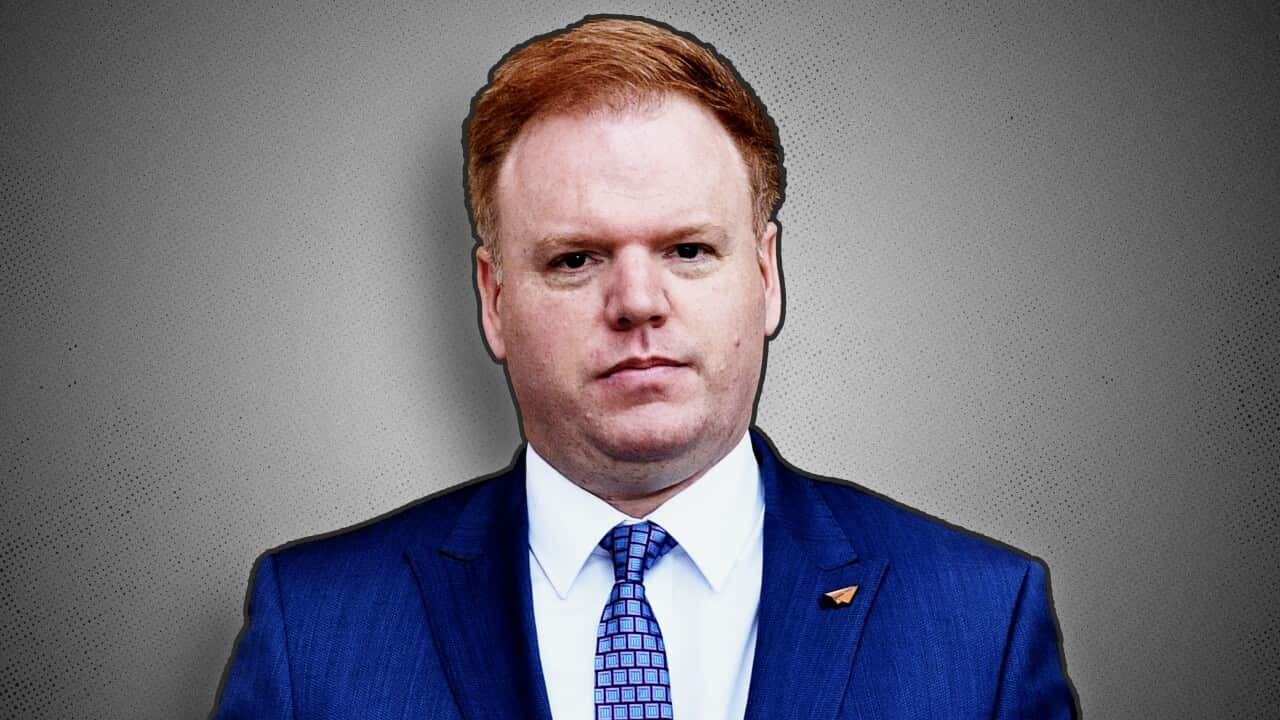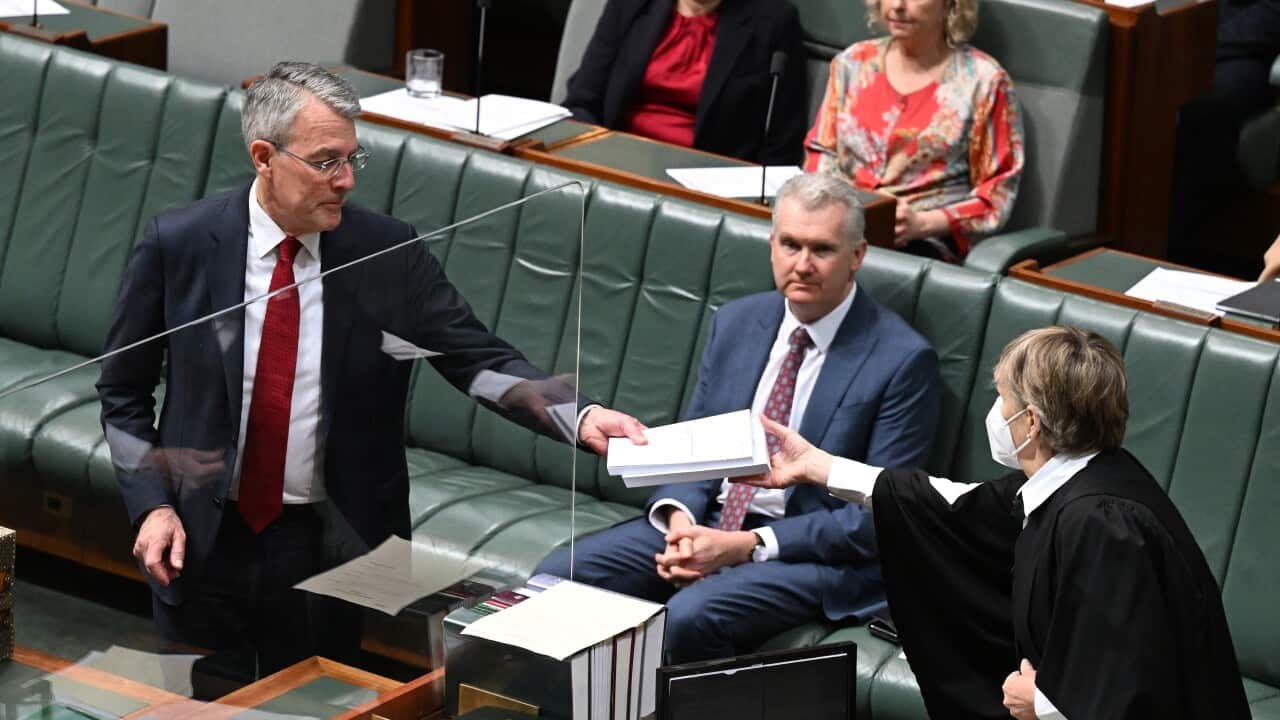Key Points
- Richard Boyle thought he was doing the right thing when he spoke up about his employer.
- The decision ended his career.
This article contains reference to suicide.
When an Australian taxpayer told debt collector Richard Boyle he was "increasingly losing the will to live, under the pressure" from the Australian Tax Office (ATO), Mr Boyle knew he needed to act.
But the ATO was Mr Boyle's employer, and the decision to speak up would be one that would end his public service career and take a significant toll on his financial and mental health.
Despite the later vindication of some of his concerns, his actions have now landed him in a David and Goliath court battle with his former employer, the Commonwealth Government, that could result in a lengthy jail term.
The case against him will also be the first test of Australia’s protections for others in his situation.
In 2017, Mr Boyle made a public interest disclosure about maladministration at the Adelaide debt collection centre of the ATO. He was concerned about the excessive use of garnishee notices – legal documents by which the tax office can demand a financial institution hand over a taxpayer’s funds to pay an outstanding debt.
The ATO can demand the bank or institution transfer the full amount or make ongoing payments, including future deposits. The ATO can do this without notifying the taxpayer.
Towards the end of the 2017 financial year, an acting team leader emailed ATO staff in Mr Boyle’s work group with the memo: “the last hour of power is upon us. That means you still have time to issue five garnishees… right?”

Protesters gather ahead of Richard Boyle's civil hearing in Adelaide. Source: SBS News / SBS News
“I was disgusted at this callous lack of concern for taxpayers' welfare,” Mr Boyle says in a 50-page affidavit, submitted to the District Court of South Australia.
He recalls a supervisor saying: “for f***’s sake, I am sick of taxpayers threatening suicide”.
The incidents led the senior public servant to blow the whistle on what he saw as overbearing debt collection tactics endorsed by the ATO against small businesses.
Mr Boyle first raised these concerns internally, then with the Inspector General of Taxation.
When nothing was done, he went public, speaking to ABC’s Four Corners program.
Two weeks before the ABC interview aired in 2018, at the request of the ATO for documentation it said he shouldn't have accessed.
Then in 2019, he was charged with 66 criminal offences, including the alleged unlawful use of listening devices to record conversations with other ATO employees and disclosure of protected information, which Mr Boyle said he collected to support him under the Public Interest Disclosure Act 2013 (PID) - explained below.
The charges have been reduced to 24, but still carry lengthy prison terms - possibly decades - if he isn’t granted protection and loses a criminal trial scheduled for next year.
But in a landmark civil hearing beginning this week and expected to last for several more, Mr Boyle’s lawyers will apply for immunity on the basis their client is protected from prosecution under public interest disclosure legislation.
Mr Boyle’s concerns around the garnishee powers have been vindicated in a series of official investigations, but he has openly discussed his battle with depression, telling the ABC's 7:30 program: “I feel like I almost died from the stress”.

Richard Boyle arriving at the Adelaide Magistrates Court in 2019. Source: AAP / Kelly Barnes
The year before, an Inspector-General of Taxation's report found that while allegations that there was an "ATO direction for a cash grab on small business" were not sustained, ATO staff had not always exercised their powers "proportionately and appropriately".
An Australian Small Business and Family Enterprise Ombudsman review in 2019 found the ATO's use of garnishee notices was "excessive".
Lawyer Kieran Pender from Human Rights Law Centre described the personal and financial cost of the ongoing litigation as "horrendous".
“It’s a prosecution that is dragging out and taking a significant emotional, financial and psychological toll on someone who just tried to do the right thing,” he said.
Experts warn the handling of Richard Boyle’s case could have a chilling effect on others — particularly public servants — who want to speak out against wrongdoing.
Mr Boyle’s lawyers are asking the District Court of South Australia to find their client immune from criminal charges under whistle-blower protection legislation.
The Public Interest Disclosure Act 2013 (PID) is supposed to protect Commonwealth employees who speak up on wrongdoing such as corruption, maladministration and abuse of public trust. The Act also protects whistleblowers who go to the media after making an internal disclosure, if they believe the investigation was inadequate.
But these protections have never been tested in court.
Griffith University Professor A J Brown, who heads the Centre for Governance & Public Policy’s integrity and anti-corruption research, said there was no doubt Mr Boyle’s PID should trigger protections.
“In theory, the protections are very strong,” said Mr Brown, who is also a board member with Transparency International Australia. “But we know there are all sorts of technical problems with the whistleblower protections that mean is very hard to get the benefit of those protections.”
One of the key issues with the current laws, according to their critics, is there is no independent umpire to investigate reprisal action or protect whistleblowers.
"That’s now been exposed as a really big deficiency because that means the only option for a whistleblower who has done the right thing but then suffered detrimental consequences is to have to slog it out in court,” Mr Brown said.
“The sheer amount of time, cost and damage both to individuals — and the reputation of the government by pursuing this as a criminal prosecution — really makes it a very important case.”
Current whistleblower protection laws for federal public servants were brought in by Attorney-General Mark Dreyfus during Labor’s previous term. Mr Dreyfus has since acknowledged there are problems with the legislation and promised to fix it.
“In coming months I will be strengthening the Public Interest Disclosure Act 2013 to ensure Australia has effective protection of whistleblowers,” he reiterated last week, as he introduced the National Anti-Corruption Commission Bill.
Mr Pender says the laws are: "not fit for purpose".
“Richard Boyle has to rely on the current problematic faulty laws and not the new laws the government has promised to introduce.”
“It’s deeply and darkly ironic that a week after the government introduces legislation to create the , a whistleblower who tried to blow the whistle on wrongdoing in government is going to be facing trial.”
What's next for Richard Boyle?
The Human Rights Law Centre has renewed its call for the Attorney-General to discontinue the case.
In July, the Attorney-General intervened and discontinued the prosecution of in a closed courtroom for allegedly leaking classified information about an alleged Australian spying operation in East Timor.
“It’s very disheartening the Attorney-General has not dropped the other two ongoing prosecutions of whistleblowers, being Richard Boyle and David McBride [who blew the whistle on alleged war crimes in Afghanistan]," Mr Pender said.
“The prosecution of Richard Boyle has a significant chilling effect on people speaking up about wrongdoing. This is a case when someone thought they were following the letter of the law and now they find themselves on trial. That is not in the public interest.”
If the District Court or higher courts reject Mr Boyle's claim for immunity, he will face a criminal trial in October 2023.
Readers seeking support with mental health can contact Beyond Blue on 1300 22 4636. More information is available at . supports people from culturally and linguistically diverse backgrounds.











